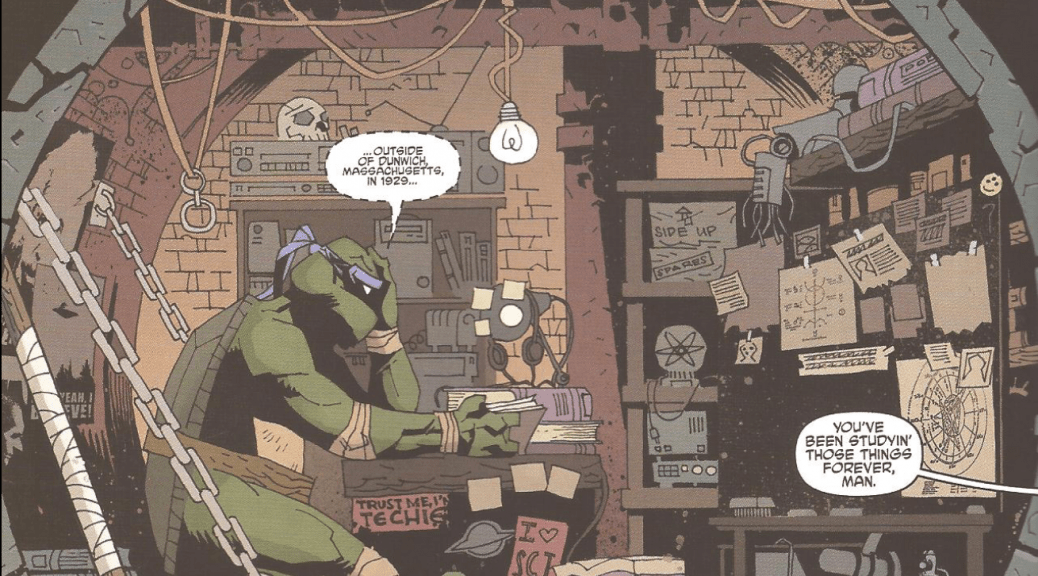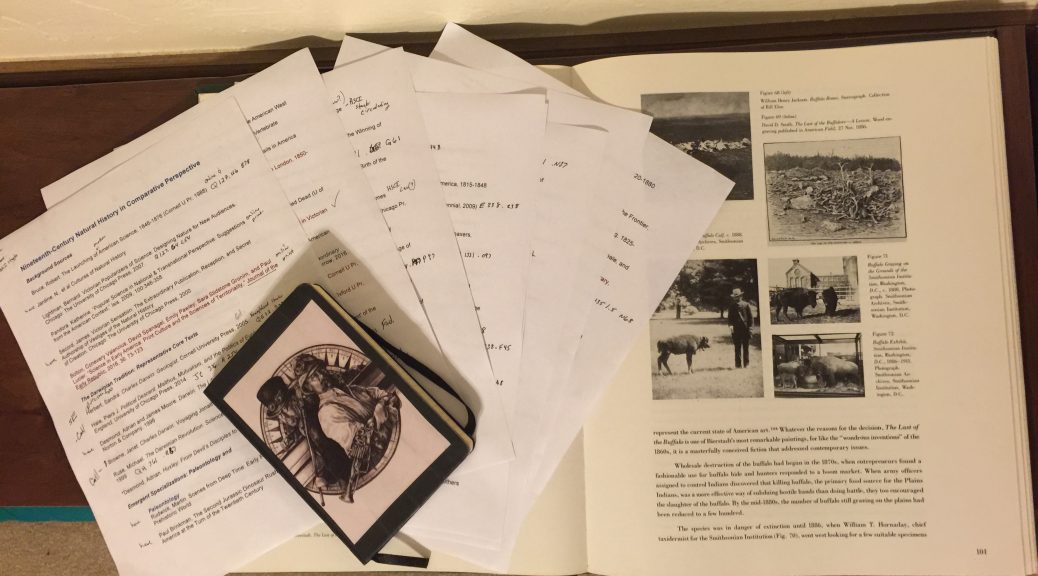Background Sources
That is the subheading for this seemingly insurmountable portion of the foothills of the mountain that is comps prep. Nothing about this is going to happen in even a remotely timely manner. In fact, you never know just how many things can happen to get in the way of actually finishing a book. This can range from the mundane–neighbor’s son’s dogs jumping the fence and wanting to hang out in our yard–to the earth shaking–literally a 5.6 earthquake at 7 a.m. so you can spend the morning looking for cracks in your drywall and mortar. 
In and around that you have a stack of four or five books that average 400 pages and a couple of articles that you read online first to make it feel like you are making headway. This is the comps equivalent of putting “make a to-do list” on your to-do list so you can cross it off. You will grow to love articles mostly because they are (for the most part) succinct pieces of text that aren’t buried in statistical analysis of organizational member numbers and/or reinforced again and and again every time someone’s name is mentioned.
Background sources are just that. Everything in the background. Think of it as the base neutral painting on a canvass so your detailed painting doesn’t get absorbed. You may also think of it as being blown back out of the whirlpool that was your master’s work. The most established metaphor for graduate school is “drinking from a fire hose.” One of my mentor professors pitched it as parachuting into a sea of information and you swim around in as much general knowledge as you can as you head towards something more directed. To add to this, as you are swimming you end up in the Straits of Messina staring in the face of Charybdis.
At the point you finish your thesis you are swallowed, only to have Chary spit you back out into the great sea of all the things you didn’t know. It is the intellectual equivalent of running “horses” at basketball practice. To get through it, you have to get to it. Sort of like the ending of the original Magnificent Seven or, to keep with our ocean theme, this:
You’ll see this sections readings at the end of this post, but for now I am going to wax nostalgic on their collective points. I originally intended to work through each work systematically, but this isn’t going to be a collection of reviews (you can get plenty of those on JSTOR) or a set of notes for a reading comprehension exam. This, I think, is the largest hangup for many of us: the name. Comprehensive exams aren’t comprehensive in the fact that you are going to test your reading comprehension in the tradition sense of recounting what schools someone attended in Germany before trying to build the Dudley observatory, or the grandeur of the academic genealogy that has some how passed down with more than a slight attachment to politics. There is no way that you can remember details, notes or otherwise, in any useful manner from tens of thousands of pages of text, so you have to go with what you know, trust that your committee is preparing you well, and start packing new and useful things around those that you already know.
For the background stuff, that is fairly easy. There were only two things in this section that I was unfamiliar with. One being Robert Burce’s Pulitzer prize winning 1988 work on The Launching of Modern American Science, 1846-1876, and the most recent (2016) Bolton et al. “Science in Early America: Print Culture and the Sciences of Territoriality.”

The easiest way to explain the nature of background reading is driving out to meet a new friend only to find that several other people you know live on their street. Bruce should be the handbook for anyone studying American History of Science in the 19th century. It can also serve as a playbook for anyone wanting to understand scientific enterprise in the 20th and 21st centuries. There are many instances that modern scientific organizations are repeating many of the errors that plagued our Early Republic and Jacksonian brothers.
It all boils down to the European model. What can be gleaned from the organization and approach to science from the schools of Europe, and Europe in this sense means Germany, France, and the UK. America students made up for the lack of graduate training by studying with some of the most famous names in the History of Science before returning to the U.S. to set up smaller versions of the laboratories where they worked in Berlin, Paris, and Edinburgh. Scientific correspondence takes off during this period and many American scientists earn their clout from their relationships with those famous Europeans.
Printing releases a flood of information, misinformation, religious fervor, and new nationalism throughout all literate society. Pamphlets, proceedings from scientific societies, handbills, and books circulated more widely than ever before and offered a glimpse into the structure of science. This is especially true for the newspapers in the United States. Even the popularizers and New Audiences in and around London were no match for the volume and distribution of the science of the press in American in the 1830s/40s. Many prominent British travelers remarked on the amount of newspapers being read across the Atlantic, even working class men were seen to have newspapers.
Such information required vetting from those in the know according to people like Thomas Huxley who fought against non scientists writing about science. Many today fall under this Huxley flock to the detriment of their own scientific communication efforts. In the end Huxley adopted the very methods, modes, and vocabularies of those he derided. The public wanted to know science, but they wanted it delivered in a way that wasn’t dry, trite, or boring. This also leads to come of the great “classics” in the History of Science coming out with staying power: things like Lyell’s Principles of Geology and the (then) anonymous Vestiges of the Natural History of Creation.
Vestiges is brilliant. Not so much for what it says, but for the fact that it was anonymous. If no one wrote it then anyone could have. It turned into a sort of Dread Pirate Roberts. Depending on the audience, the author could have been a middle class partisan, or a mechanic distrustful of the new systems of industry. Because no one knew who wrote it, it was not immediately evident who the book was for. This is it’s greatest legacy, and it would be a thing to see if people weren’t allowed to know who wrote something until after they had read it. Works would have to be weighed on merit, logic, and evidence instead of dismissed (or lauded) out of hand because of its author.
This period, moreso than others I think, really set the stage for “modern” thinking. In more than just name, as Bruce highlights ad nauseum, but because these are the roots of the legacy of universities like Yale, Harvard, UPENN, and a few others. The essays in Cultures of Natural History reveal how the relationship with natural history shaped the way we think about things today. This isn’t necessarily the royal we, as someone coming from a scientific background in geology and paleontology I have really seen several unbroken legacies in both Cultures of Natural History and The Launching of Modern American Science, 1846-1876.
Do I know any more about the background of 19th Century Natural History than I did when I started? I could pinpoint one or two “facts” that I didn’t know, like where Joseph Henry worked in Michigan, or who were members of the Lazzaroni and when. One of the things about a year of preparation for multi-hour tests is that won’t be the question. The questions (I think) will be arranged to expose the holes that I will likely still have after finishing 123 books on a list. Hopefully it bodes well that a lot of the larger themes in these books–amateurism, professionalism, development of disciplines, scientific societies and organizations, new American exploration expeditions with scientists on board, are all things that I have written about before.
I think the best thing that comes out of the background reading (aside from Bruce’s work most likely being my bible for dissertation work–less his copious statistical analysis of the Dictionary of American Biography) is that James Secord really sums up preparation for comps when talking about the reading of Vestiges:
“Every act of reading is an act of forgetting: the experience
of reading is a palimpsest, in which each text partially covers
those that came before” (515)
Readings for this section (articles linked where available)
Bruce, Robert. The Launching of American Science, 1846-1876 (Cornell U Pr, 1988)
Jardine, N., et al Cultures of Natural History
Lightman, Bernard. Victorian Popularizers of Science: Designing Nature for New Audiences. Chicago: The University of Chicago Press, 2007.
Pandora, Katherine. “Popular Science in National & Transnational Perspective: Suggestions from the American Context,” Isis, 2009, 100:346-358.
Secord, James. Victorian Sensation: The Extraordinary Publication, Reception, and Secret Authorship of Vestiges of the Natural History
of Creation. Chicago: The University of Chicago Press, 2000.
Bolton, Conevery Valencius, David Spanagel, Emily Pawley, Sara Stidstone Gronim, and Paul Lucier, “Science in Early America: Print Culture and the Sciences of Territoriality,” Journal of the Early Republic, 2016, 36: 73-123



























